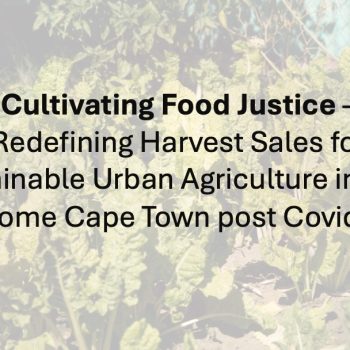The WOK-UE project studies a range of urban environmental issues that provide context for examining these notions, including food security, waste handling, green space struggles, biodiversity conservation and the ‘ecosystem services’ concept. We analyse the complex interplay between how animals, plants, ‘green spaces’, ecological processes and urban waste are enrolled on one hand into modes of empowerment by the marginalised, and on the other hand as part of powerful forms of governing and ‘silencing´ alternative understandings of urban natures.
Key questions are: Who can claim to be ‘in the know´ regarding urban ecology? What potentially liberating and/or oppressive roles do conventional understandings of urban ecology play in cities? How can urban ecology and the conventional practice of natural resource management be re-thought so as to better serve emancipatory agendas towards sustainable and more just cities? These questions are of pressing concern, not least in cities of Africa and the global south. In engaging community groups, civil servants and academics we bring in-depth case studies to inform and unsettle mainstream policy discourse towards reimagining how just and sustainable forms of urbanisation might be made possible. The project is divided in three major themes: “Urban Ecology as History, Culture and Empowerment”, “Situating Urban Political Ecology—Provincializing Urban Political Ecology through Southern/African Urbanism”, and “Rethinking Urban Natural Resource Management”. Planned academic outputs: two special issues and one edited book.
Researchers: Dr. Henrik Ernstson (PI), Dr. Jane Battersby, Dr. Mary Lawhon, Marnie Graham (PhD student), Joshua Lewis (PhD student),Dr. Anna Storm, Professor Sverker Sörlin.








